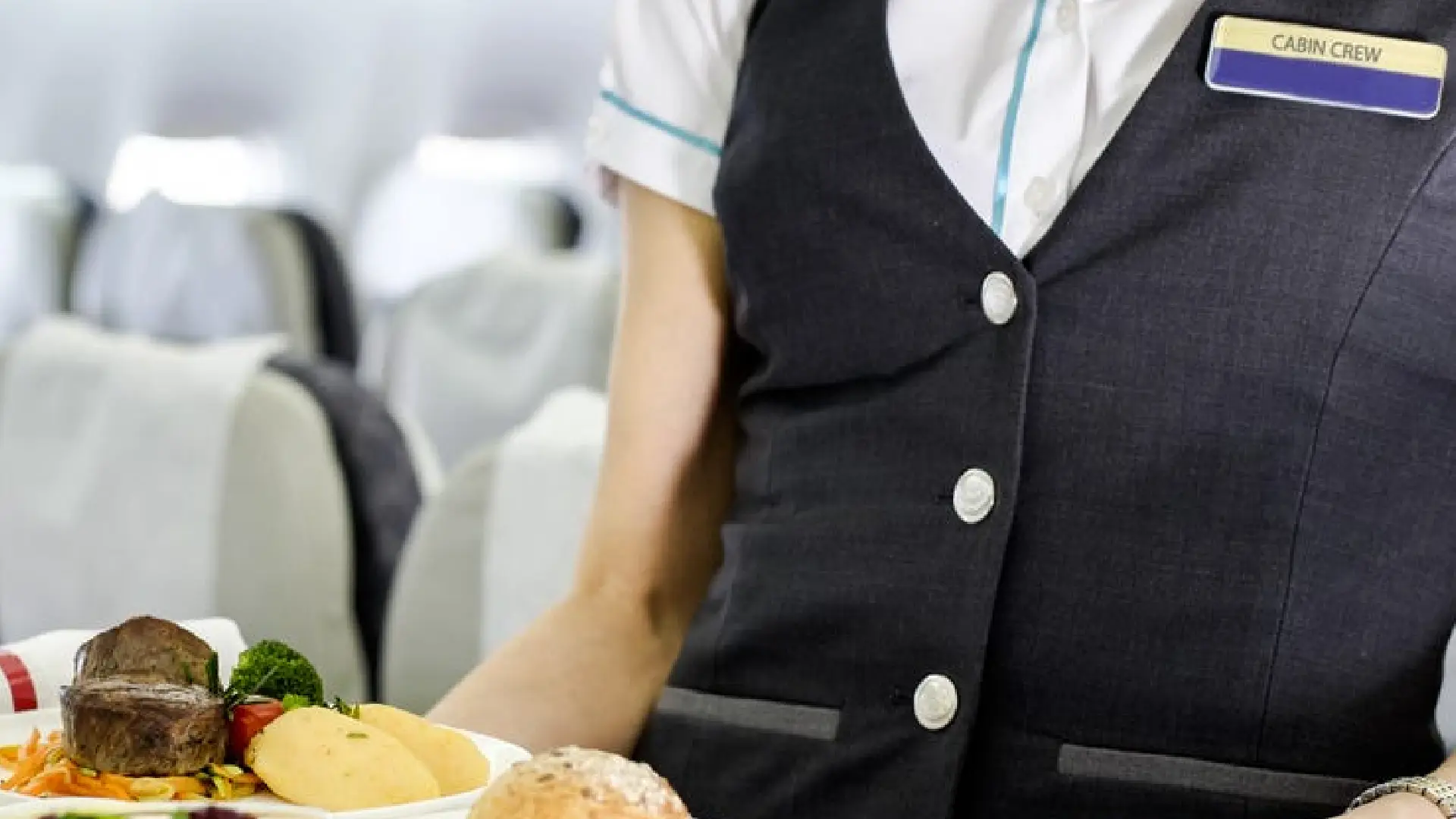
In today’s globalized world, the aviation industry connects people from diverse cultural backgrounds, each with unique culinary traditions and dietary preferences. For inflight catering services, understanding and adapting to these cultural sensitivities is crucial to providing a satisfying dining experience for passengers. This article explores the importance of cultural sensitivities in jet catering services and how inflight catering services can adapt to global tastes and traditions to enhance passenger satisfaction.
The Importance of Cultural Sensitivities in Inflight Catering Services
Cultural sensitivity in inflight catering is essential for several reasons:
1. Enhancing Passenger Experience: Passengers appreciate when their cultural preferences and dietary needs are recognized and respected. It contributes to a positive flight experience, which is particularly important on long-haul journeys.
2. Inclusivity and Diversity: By offering diverse menu options that cater to various cultural and religious requirements, airlines can demonstrate their commitment to inclusivity and respect for diversity.
3. Meeting Dietary Needs: Cultural sensitivities often encompass specific dietary restrictions, such as halal, kosher, vegetarian, vegan, and gluten-free diets. Addressing these needs is critical to ensuring that all passengers can enjoy their meals.
4. Building Brand Loyalty: Airlines that consistently provide culturally sensitive meals can build stronger brand loyalty among passengers, especially those from diverse cultural backgrounds.
5. Differentiation: In a competitive market, airlines that excel in adapting their inflight catering services to meet cultural preferences can differentiate themselves and gain a competitive edge.
Strategies for Adapting Inflight Catering Services to Global Tastes
To effectively cater to the diverse tastes and traditions of passengers, inflight catering services can implement several strategies:
1. Conducting Cultural Research
Understanding the culinary traditions and dietary preferences of different cultures is the first step in adapting inflight catering services. Airlines can conduct cultural research to gather insights into various cuisines, cooking methods, and dietary restrictions. This research should include:
- Traditional dishes and ingredients
- Cooking techniques and preparation methods
- Dietary laws and restrictions (e.g., halal, kosher)
- Meal presentation and serving customs
2. Collaborating with Culinary Experts
Partnering with culinary experts, including chefs and nutritionists who specialize in different cuisines, can help airlines develop authentic and culturally appropriate menus. These experts can provide valuable insights into traditional recipes, ingredient sourcing, and preparation techniques.
For example, an airline catering to a large number of passengers from the Middle East might collaborate with a renowned chef specializing in Middle Eastern cuisine to create an authentic and appealing menu.
3. Offering Regional Menus
Offering regional menus tailored to the cultural preferences of passengers on specific routes can enhance the inflight dining experience. Airlines can create menus that reflect the culinary traditions of the departure and destination regions. For instance:
- On flights from India to Europe, offering a mix of traditional Indian dishes and European cuisine.
- On routes between Japan and the United States, including Japanese bento boxes and American-style meals.
Regional menus not only cater to cultural preferences but also provide passengers with a taste of the local cuisine, enriching their travel experience.
4. Addressing Dietary Restrictions
Many cultural and religious dietary restrictions require careful consideration in inflight catering services. Airlines should ensure that their menus include options for passengers with specific dietary needs, such as:
- Halal Meals: Prepared according to Islamic dietary laws.
- Kosher Meals: Adhering to Jewish dietary laws.
- Vegetarian and Vegan Meals: Catering to passengers who avoid animal products.
- Gluten-Free Meals: For passengers with gluten intolerance or celiac disease.
Clear labeling and communication about these options are essential to ensure passengers can make informed choices.
5. Training Inflight Staff
Inflight staff play a crucial role in delivering culturally sensitive catering services. Training programs should be implemented to educate cabin crew about cultural and dietary sensitivities, including:
- Understanding the significance of certain foods and preparation methods.
- Learning how to handle and serve culturally specific meals.
- Being aware of proper etiquette when interacting with passengers from diverse cultural backgrounds.
Well-trained staff can enhance the overall dining experience by providing knowledgeable and respectful service.
6. Incorporating Feedback Loops
Passenger feedback is invaluable for continually improving inflight catering services. Airlines should establish feedback loops to gather and analyze passenger reviews regarding their dining experience. This feedback can highlight areas for improvement and identify emerging trends in passenger preferences.
By regularly updating menus and services based on passenger feedback, airlines can ensure that their inflight catering remains relevant and responsive to cultural sensitivities.
Case Studies: Adapting Inflight Catering to Cultural Sensitivities
Emirates: Celebrating Cultural Diversity
Emirates, known for its exceptional inflight catering services, has successfully adapted its menus to cater to a diverse passenger base. The airline offers a wide range of regional and culturally specific meals on its flights, including:
- Authentic Indian, Middle Eastern, and Asian dishes.
- Halal-certified meals for passengers observing Islamic dietary laws.
- Special meal options for children, vegetarians, and passengers with dietary restrictions.
Emirates collaborates with local chefs and culinary experts to create menus that reflect the culinary traditions of its destinations, ensuring an authentic dining experience for passengers.
Singapore Airlines: Tailoring Menus to Routes
Singapore Airlines is renowned for its attention to cultural sensitivities in inflight catering. The airline tailors its menus to specific routes, offering regional dishes that resonate with passengers’ tastes. For example:
- On flights to and from Japan, passengers can enjoy Japanese cuisine, including sushi and bento boxes.
- On routes to India, the airline offers a variety of Indian dishes, such as biryani and masala dosas.
Singapore Airlines also provides a range of special meals, including halal, kosher, vegetarian, and gluten-free options, ensuring that all passengers’ dietary needs are met.
The Role of Technology in Adapting Inflight Catering
Technology plays a significant role in enhancing inflight catering services and adapting to cultural sensitivities. Advanced data analytics, artificial intelligence, and automation can streamline the process of menu planning, ingredient sourcing, and meal preparation. Here’s how technology can help:
1. Data Analytics: By analyzing passenger data, airlines can identify cultural preferences and dietary trends, allowing for more informed menu planning.
2. AI-Powered Personalization: Artificial intelligence can help customize meal options for individual passengers based on their previous preferences and feedback.
3. Automated Inventory Management: Automation can ensure that the right ingredients are available in the right quantities, reducing waste and ensuring fresh, high-quality meals.
4. Real-Time Feedback Systems: Digital platforms can facilitate real-time feedback from passengers, enabling airlines to make immediate adjustments and improvements.
Conclusion
Adapting inflight catering services to cultural sensitivities is essential for enhancing passenger satisfaction and building brand loyalty in the competitive aviation industry. By conducting cultural research, collaborating with culinary experts, offering regional menus, addressing dietary restrictions, training inflight staff, and incorporating feedback loops, airlines can provide a diverse and inclusive dining experience.
Successful examples from airlines like Emirates and Singapore Airlines demonstrate the effectiveness of these strategies in delivering culturally sensitive and high-quality inflight catering services. Moreover, leveraging technology can further enhance the adaptability and efficiency of catering operations.
Ultimately, respecting and embracing cultural diversity in inflight catering not only meets the expectations of passengers but also celebrates the rich tapestry of global culinary traditions, making every journey a memorable dining experience.

















